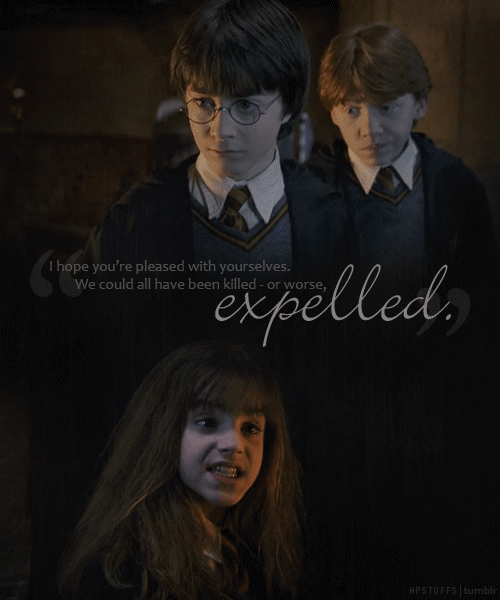
Harry Potter Psychotherapy: Teenage Development and Emotionality
*I do not own Harry Potter, therefore, mention of characters/concepts are solely intended for educational and therapeutic gain.*
Teenage Development
Characters change and develop greatly throughout the Harry Potter series. Readers get to explore Harry and his friends navigate mood swings, identity confusion, budding romance, peer relationships, self-esteem, and of course, fighting the Dark Lord. Neuro-imaging of the teenage/adolescent brain shows that the brain does not fully develop until the mid-20’s. The prefrontal cortex responsible for planning, decision-making, judgment, and insight, is the last part of the brain to fully develop. Additionally, the amygdala and limbic system are emotional areas in the brain that are more developed in adolescence than the prefrontal cortex. Therefore, adolescents are more emotional with less capacity to make rational decisions. It is believed that the imbalance between those parts of the brain contribute to the commonly perceived increased moodiness and stress response. Harry and his friends often make dangerous and impulsive decisions for the good of others. One might question how much of their actions relate to age, Gryffindor qualities, or hero complex (perhaps all three). Poor Harry was extremely angsty in Order of the Phoenix when he felt ignored and marginalized.
Erik Erikson’s psychosocial theory of life development provides another glimpse into the adolescent mind. We first meet Harry and his friends on the tail end of Industry versus inferiority, the fourth stage of Erik Erikson’s theory of psychosocial development. Industry versus inferiority occurs during childhood between the ages of 5 and 12. Specifically looking at Hogwarts ages 11 and 12, the peer group gains greater significance and becomes a major contributing factor of the adolescent’s self-esteem. For example, they often feel the need to win approval of their peers by proving their worth, skills, and accomplishments for developing pride. If encouraged or reinforced properly, they will feel industrious and confident in their abilities. If this is not supported, then the adolescent will feel inferior, thus doubting his or her own abilities and struggling to reach their full potential. In other words, if they aren’t successful developing the specific skill they feel society is demanding then they could adopt feelings of inferiority. In contrast, some failure or adversity may be helpful in developing modesty. A balance between competence and modesty is key. Success in this stage is referred to as “competence”.
Harry lived with the Dursley’s for most of this stage, therefore, he developed a sense of inferiority and modesty in his abilities due to his cold, discouraging, and bullying environment from family, adults, and peers. Harry was not able to reach his full potential until starting Hogwarts and realizing that he was talented and skilled at magic (quidditch!). Harry managed to remain modest even through his celebrity status and attention gained from heroic antics. Ron seemed to struggle with inferiority due to his perception of being overshadowed by his siblings. Instead of working to improve his performance, he remained stuck in feeling insecure in comparison of others. Hermione successfully achieved competence with the exception of her anxiety related to perfectionism.
The fifth stage of psychosocial development is identity vs. role confusion, and it occurs between ages 12-18. During this stage, adolescents look for personal identity through exploring values, beliefs and goals. This is when each individual strives to belong to society and discover where they will fit in, whether through career, building a family, interpersonal relationships, or community. Essentially they begin to learn which roles they will occupy as adults. Erikson believed that two identities are involved with self-exploration: sexual and occupational. Sexual identity refers to examining their gender role expectations and body image changes. Adolescents are often uncomfortable with their bodies as they go through puberty, and successful integration of the stage leads to “fidelity”, when self-confidence allows acceptance of others based on integrity in spite of their differences. Exploration and trial aids identity formation based on information experienced. A failure to establish said identity leads to role confusion or identity crisis, often leading to depression or anxiety. Harry was forced into his personal identity due to the prophecy and entanglement with Voldemort. However, Harry did struggle to relate with his peers due to their frequent mistrust and judgment. It seems as though Harry’s perceived destiny was strong enough to carry him through to a healthy identity formation, even with a massive hero complex. Hermione was often tested by her activism attempts with SPEW and other magical creatures. It was also a struggle for her to figure out her role as an intelligent muggle-born witch. Hermione became more comfortable in her own skin as a result of her trials and experiences, thus successfully developing a personal identity. Ron struggled with role confusion in his family roles AND his friendship roles. Ron’s theme of feeling overshadowed and inferior was carried into his role confusion, thus leading to irrational decision making, impulsivity, and frequent fights with his friends. Ron’s character arc improved at the end of the series with the help of some much needed self-reflection and Dumbledore’s deluminator.
So How Does This Help?
If you are a teen or adolescent, you might find some comfort in knowing that the discomfort and awkwardness you often feel is normal. If you feel that you are struggling with inferiority or role confusion, then you may want to seek out help from a professional to discuss the underpinnings contributing to your situation. As a parent, this information serves as a reminder of just how much your child has to balance in this world that seems to become more complicated every day. Remember that no one should have to face their problems alone. Harry had his best friends and adult support network to help him get through his challenges. No matter who you are, everyone deserves to have a support network and a therapist to talk to.
Reflection Questions to Promote Successful Competence and Identity:
- What are my skills and talents?
- Which skills or talents were natural for you?
- Which skills or talents did you have to work hard at for improvement?
- What are your peers like?
- Among your peers, who can you speak to most freely without judgment?
- Where can you meet new peers outside of school?
- What would you do with the majority of your time if you didn’t have to worry about money?
- Who would you want to surround yourself with in 5 years from now? In 10 years?
- What skills do you have to give back to the community?
- Do those skills and talents match up with your interests? Explain
- What are you doing when you feel most content? Who are you with?
- How would you describe yourself to a stranger? to a friend? to family? to a coworker or boss?
- What gender roles did you grow up observing?
- Do you agree with those gender roles? If not, what would you like to change or be different?
- If you struggle with body image, what is influencing your self-criticism?
- What do you think it would feel like to fully accept your body and mind? Describe
- How would you treat or speak to others if you held that full self-acceptance of body and mind?
Please note that the aforementioned therapy information does not qualify as stand-alone treatment and it is recommended that you seek help from a licensed professional mental health provider.
Thank you for reading this Harry Potter psychotherapy entry. For personalized professional support, please contact me to schedule an appointment at:
E-mail: jmorris@jmmhc.com
Voicemail: (248) 327-4643





Write a Comment